METHOTREXATE - ORAL
PHONETIC PRONUNCIATION: (METH-oh-TREX-ate)
COMMON BRAND NAME(S): Rheumatrex, Trexall
GENERIC NAME(S): methotrexate sodium
Uses
USES: Methotrexate is used to treat certain types of cancer or to control severe psoriasis or rheumatoid arthritis that has not responded to other treatments. It may also be used to control juvenile rheumatoid arthritis. Methotrexate belongs to a class of drugs known as antimetabolites. It works by slowing or stopping the growth of cancer cells and suppressing the immune system. Early treatment of rheumatoid arthritis with more aggressive therapy such as methotrexate helps to reduce further joint damage and to preserve joint function.
How to use METHOTREXATE - ORAL
HOW TO USE: Read the Patient Information Leaflet if available from your pharmacist before you start taking methotrexate and each time you get a refill. If you have any questions, ask your doctor or pharmacist. Methotrexate is a strong medication. The dosage and how often you take this medication are based on your medical condition and response to treatment. There are many different dosing schedules for this medication (especially for cancer treatment). Taking this medication the wrong way may cause serious side effects, including death. Therefore, it is very important that you follow your doctor's instructions carefully. Take this medication by mouth as directed by your doctor. For the treatment of psoriasis or rheumatoid arthritis, take this medication by mouth as directed by your doctor, usually once a week. It may take up to several months before you get the full benefit of this drug. If you are using the liquid form of this medication, carefully measure the dose using a special measuring device/spoon. Do not use a household spoon because you may not get the correct dose. Do not increase your dose or use this drug more often or for longer than prescribed. Your condition will not improve any faster, and your risk of side effects will increase. Since this drug can be absorbed through the skin and lungs and may harm an unborn baby, women who are pregnant or who may become pregnant should not handle this medication or breathe the dust from the tablets. Drink plenty of fluids while taking this medication unless your doctor tells you otherwise. Doing so helps your kidneys to remove the drug from your body and avoid some of the side effects.
Side Effects
Precautions
Interactions
Overdose
Images
Reviews
Faq for METHOTREXATE - ORAL
Methotrexate - Oral is prescribed to treat certain types of cancer, rheumatoid arthritis, psoriasis, and other autoimmune diseases.
Methotrexate - Oral works by interfering with the growth of cancer cells or suppressing the overactive immune system in certain autoimmune disorders.
Common side effects of Methotrexate - Oral include nausea, stomach pain, diarrhea, fatigue, dizziness, and hair loss. It can also cause a decrease in the number of blood cells, increasing the risk of infection or bleeding.
Methotrexate - Oral is usually taken once a week. The dosage and frequency will depend on the condition being treated. It is important to follow the instructions provided by your doctor and take it exactly as prescribed.
Yes, Methotrexate - Oral should be used with caution in patients with liver disease, kidney disease, or lung disease. It can also interact with certain medications, so it's important to inform your doctor about all the medications you are taking.
No, Methotrexate - Oral is not safe during pregnancy as it can cause harm to the unborn baby. It is important to use contraception while taking this medication and talk to your doctor about the potential risks and benefits.
It is generally recommended to avoid alcohol while taking Methotrexate - Oral as it can increase the risk of liver damage and other side effects.
The time it takes for Methotrexate - Oral to work varies depending on the condition being treated. In some cases, it may take several weeks to months to see the full benefits. It is important to be patient and continue taking the medication as prescribed.
Methotrexate - Oral can be taken with or without food. Some people may find it helpful to take it with food to minimize stomach upset. However, it's important to follow the instructions provided by your doctor.
Warning
WARNING: Methotrexate has rarely caused serious (sometimes fatal) side effects. Therefore, this medication should be used only to treat cancer or severe diseases caused by an overactive immune system (such as psoriasis, rheumatoid arthritis). Methotrexate has caused birth defects and death in unborn babies. Women must avoid becoming pregnant while taking this medication. Pregnant women who have psoriasis or rheumatoid arthritis must not use methotrexate. (See also Precautions section.) If you have kidney problems or excess body water (ascites, pleural effusion), you must be closely monitored and your dose may be adjusted or stopped by your doctor. Methotrexate (usually at high dosages) has rarely caused severe (sometimes fatal) blood/bone marrow problems (decreasing your body's ability to fight infections) and stomach/intestinal disease (such as bleeding) when used at the same time as non-steroidal anti-inflammatory drugs (NSAIDs such as indomethacin, ketoprofen). Therefore, NSAIDs should not be used with high-dose methotrexate. Caution is advised if you also take aspirin. NSAIDs/aspirin may be used with low-dose methotrexate such as for the treatment of rheumatoid arthritis if directed by your doctor. If your doctor has directed you to take low-dose aspirin for heart attack or stroke prevention (usually at dosages of 81-325 milligrams a day), you should continue taking it unless your doctor instructs you otherwise. Ask your doctor or pharmacist for more details on the safe use of these drugs (such as close monitoring by your doctor, keeping the same doses of NSAIDs). In rare instances, this drug may also cause liver problems when it is used for long periods of time. If you are using methotrexate long term, a liver biopsy is usually recommended. Methotrexate use has rarely caused serious (sometimes fatal) side effects, such as lung problems, lung infections (Pneumocystis jiroveci pneumonia), skin reactions, diarrhea, and mouth sores (ulcerative stomatitis). (See also Side Effects section.) Lumps (tumors/abnormal growths) may very rarely appear during methotrexate use. The drug must be stopped and treatment may be needed. Tell your doctor right away if new lumps/growths occur. When used to treat tumors, methotrexate sometimes causes side effects due to the rapid destruction of cancer cells (tumor lysis syndrome). To lower your risk, drink plenty of fluids unless your doctor directs you otherwise. Also, your doctor may prescribe an additional medication. Tell your doctor right away if you have symptoms such as irregular heartbeat, low back/side pain, signs of kidney problems (such as pink/bloody urine, change in the amount of urine, painful urination), or muscle spasms/weakness. When this medication is used with radiation treatment, it may rarely increase the risk of tissue and bone damage. Discuss the risks and benefits of your treatment with your doctor.
Disclaimer
IMPORTANT: HOW TO USE THIS INFORMATION: This is a summary and does NOT have all possible information about this product. This information does not assure that this product is safe, effective, or appropriate for you. This information is not individual medical advice and does not substitute for the advice of your health care professional. Always ask your health care professional for complete information about this product and your specific health needs.
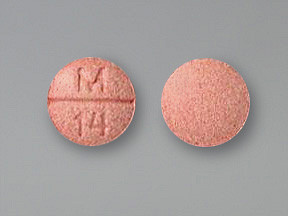
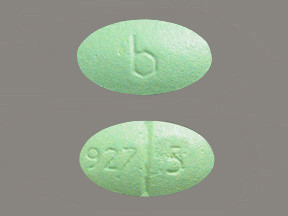
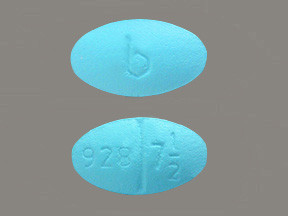
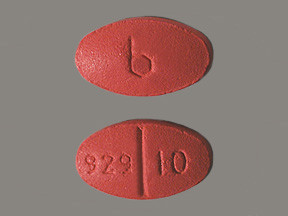
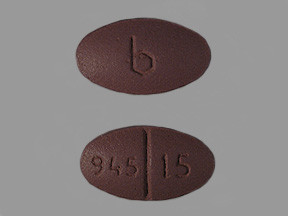
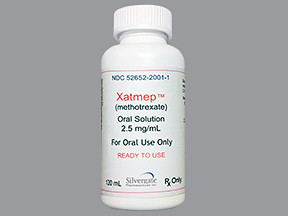
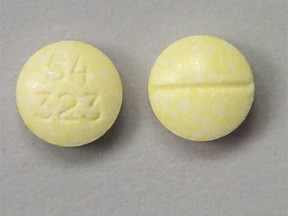
No Reviews Yet